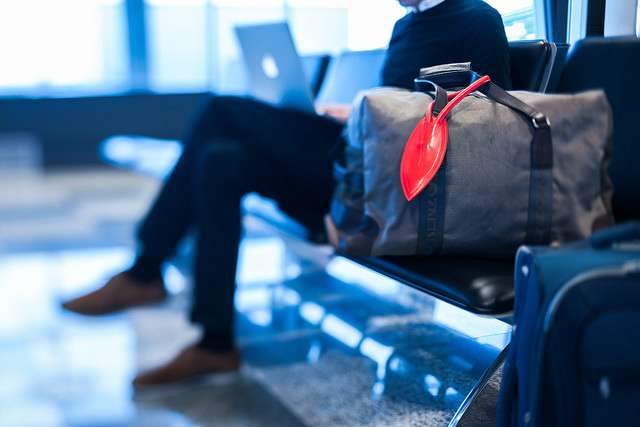Complex and ever-shifting restrictions make foreign travel a daunting proposition – more often than not for no good reason. Relatives continue to pass away without visits from loved ones, parents are isolated from children, and there are fewer jobs in travel-related activities.
Anyone who risks a visit to Canada these days needs to take care. Canadians are threatening six months in jail, and up to $750,000 in fines, for disobeying testing and quarantine rules upon arrival. In the United Kingdom, the health secretary warned that travelers arriving from outside the UK could face ten years in prison for inaccurately recording their previous whereabouts on entry forms. The Biden administration recently extended the outright ban preventing most non-Americans in Europe from traveling to the United States, with threats of fines and deportation for non-compliance.
These complex and ever-shifting restrictions make foreign travel a daunting proposition. Relatives continue to pass away without visits from loved ones, parents are isolated from children, and there are fewer jobs in travel-related activities. It is time to relax these rules in a responsible manner.
The risks from COVID-19 have been dramatically changed by vaccination. All vaccines authorized by the US Food and Drug Administration have proved well over 95% effective at preventing deaths, and over 90% effective at preventing serious disease, including against the more infectious delta variant. Vaccination lowers the overall infection fatality ratio (IFR), which measures deaths among infected people, from 0.41% to around 0.02%. (Because IFR varies significantly by age, we calculate these ratios from official data by age group, weighted by the age composition of the US population.)
Of course, vaccinating people with any kind of vulnerability, including those who are elderly or who live in congregate care settings, must remain a top global priority.
The COVID-19 vaccines do not fully prevent infections, but they do a good job of preventing severe illness. The US Centers for Disease Control and Prevention estimates that the 2019-20 influenza season caused 38 million infections, leading to 18 million medical visits, 400,000 hospitalizations, and 22,000 deaths. That implies a 0.06% IFR for the flu, more than double the IFR for COVID-19 once the vulnerable are vaccinated. There are still important open questions, including what percentage of people may suffer debilitating long-term COVID-19 symptoms. But the risks are now similar to those from diseases with which we already cope.
Epidemiologists have shown persuasively that wearing masks, social distancing, and generally avoiding close in-person contact reduces disease transmission. International arrivals do not disturb that outcome at all; if we have stopped spreading the disease, then new arrivals who follow our rules don’t change much.
In 2019, 241 million passengers arrived and departed the US by air, implying that an average of roughly 330,000 passengers entered the country per day. If all those 330,000 arrivals came from countries near the height of an infection cycle, and all symptomatic passengers still boarded the flight, then approximately 1% of those passengers (3,300 people) would be infected.
The US has recorded nearly 35 million infections in the roughly 500 days since the start of the pandemic, implying an average of around 70,000 new infections per day. The true number is probably double that, owing to undetected asymptomatic infections. If around 140,000 new infections of domestic origin per day is a reasonable estimate, the addition of up to 3,300 new cases is a minor blip.
Even though passengers on airplanes carry few infections (relative to the population size for large countries), some might argue that air travel is a breeding ground for infections, so we should ban it for that reason. There’s no doubt that traveling in confined quarters is a risk, but so are many other activities: eating in restaurants, swimming at a pool, inviting friends to your house, visiting an art gallery, etc. There’s little reason to isolate international air travel as the only activity to restrict severely. It seems far more sensible to take measures that make air travel safer.
The desire to keep out potential new variants of the disease is understandable but unrealistic. There are only a few countries that have managed a near-zero COVID outcome – notably island states like New Zealand and Australia. Most borders are far more porous. It is not people visiting relatives who ensure that all the variants will spread – it is our desire for French wines, Greek olives, Canadian maple syrup, and illegal drugs.
Sign up for our weekly newsletter, PS on Sunday
Approximately 30,000 trucks cross the US-Canada border each day, and another 18,000 travel between the US and Mexico. Similarly, roughly 10,000 trucks cross the UK border daily. Air freight and shipping raise contacts even further. To maintain a zero-variant policy would require quarantining all drivers, pilots, and other personnel, as well as halting all pedestrian, passenger car, and other traffic. The result would be further supply disruptions, higher prices (for construction materials, food, and autos, among other items), and job losses. There is no political support for such a policy.
We should stop pretending that international travel is the problem. Vaccines and treatments are keeping the variants in check, and we should keep funding promising work on boosters, new vaccines, treatments, and potential cures. Listening to public health advice is important. But our policymakers also need to focus on what really matters.
Peter Boone is Chair of Effective Intervention at the London School of Economics’ Center for Economic Performance.
Simon Johnson, a former chief economist at the International Monetary Fund, is a professor at MIT's Sloan School of Management and a co-chair of the COVID-19 Policy Alliance. He is the co-author, with Jonathan Gruber, of Jump-Starting America: How Breakthrough Science Can Revive Economic Growth and the American Dream and the co-author, with James Kwak, of 13 Bankers: The Wall Street Takeover and The Next Financial Meltdown.
Read the original article on project-syndicate.org.
More about:
















































